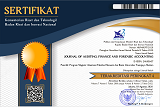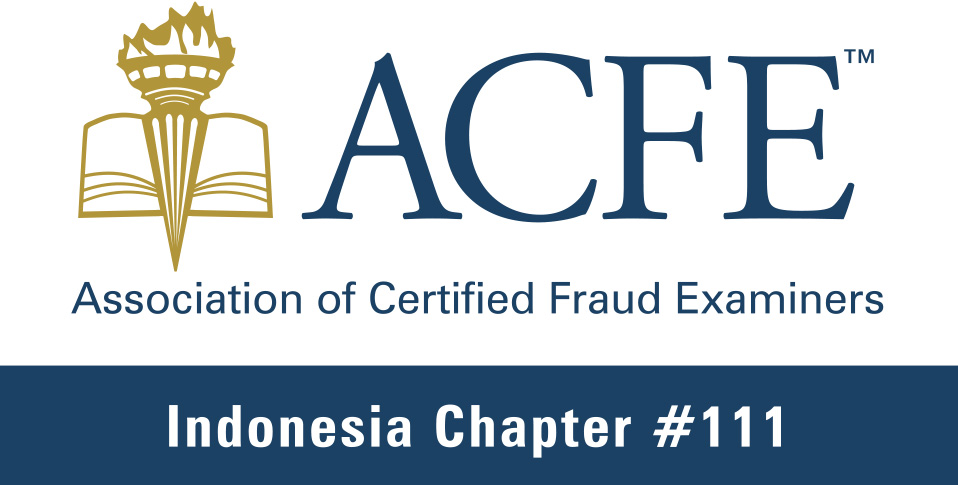LAND ASSET APPRAISAL POST-TAX AMNESTY, AN ADVANTAGE FOR TAXPAYER
Abstract
Post tax amnesty 2016, the taxpayer who does not comply tax amnesty, or taxprayer who does not properly report the entire asset, the concerned asset is considered as received or obtained income when the data and/or information is discovered on the asset. According to Circular Letter of the Directorate General of Taxes Number SE-24/PJ/2017, appraisal of non-cash asset shall be conducted in accordance with the asset state and condition as of December 31, 2015 (or at the end of a different period for a Taxpayer who have a different book year ending). For the land asset, the value is set using Land & Building Tax Imposition Base (NJOP-PBB). This study proves that Tax Imposition Base (NJOP) is below the market price. The descriptive qualitative method was applied in analyzing whether or not the provisions as regulated in Circular Letter of the Directorate General of Taxes Number SE-24/PJ/2017 is proper. This study concludes that Taxpayer will gain two advantages from the enactment of Circular Letter of the Directorate General of Tax Number SE-24/PJ/2017 that is 1). Land asset value is based on Land & Building Tax Imposition Base; 2). Land & Building Tax Imposition Base used is 2015 Land & Building Tax Imposition Base, instead of the applicable Land & Building Tax Imposition Base when the asset is discovered.
Keywords
Full Text:
PDFReferences
Fanning SF, Terry V Grissom, Thomas D.Pearson,1980, Market Analysis for Valuation Appraisals, Appraisal Institute 875 North Michigan Avenue Chicago, Illinois 60611
Kotler, Philip dan Keller L. Kevin, Metodologi Penelitian: Aplikasi Dalam Pemasaran, Indeks, Jakarta, 2006
Philip, Kotler & Kevin L. Keller, 2006, Metode Kualitatif Deskriptif , tempat terbit, nama penerbit
Ragimun, tanpa tahun, Analisis Implementasi Pengampunan Pajak (Tax Amnesty) di Indonesia,https://www.kemenkeu.go.id/sites/default/files/ Analisis%20Implementasi%20Tax%20Amnesty%20di%20Indonesia.pdf, diunduh 9 Oktober 2017
Sukada,IW,2015, http://www.bppk.depkeu.go.id/publikasi/artikel/167-artikel-pajak/20891-bagaimana-menetapkan-njop-tanah-secara-wajar, diakses 21 Oktober 2017
jurnalskripsi.com/analisa-tingkat-akurasi-penetapan-njop-bumi-terhadap-nilai-pasar-dengan-metodeassessment-sales-ratio-studi-kasus-di-kecamatan-kaliwates-kabupaten-jember/, diakses 9 Oktober 2017
https://pengampunanpajak.com/perihal/ , diakses 9 Oktober 2017
https://finance.detik.com/berita-ekonomi-bisnis/3462172/program-tax-amnesty-berakhir-ini-hasilnya, diakses 9 Oktober 2017
https://klc.kemenkeu.go.id/wp-content/uploads/2016/10/Materi-Pendekatan-data-pasar.pdf, diunduh 21 Oktober 2017
Undang-undang Nomor 6 Tahun 1983 tentang Ketentuan Umum dan Tata Cara Perpajakan sebagaimana telah diubah terakhir dengan Undang-undang Nomor 6 Tahun 2009
Undang-undang Nomor 7 Tahun 1983 tentang Pajak Penghasilan sebagaimana telah diubah terakhir dengan Undang-undang Nomor 36 Tahun 2007
Government Regulation Number 11, 2016, on Tax Amnesty
Undang-Undang Republik Indonesia Nomor 28 Tahun 2009 tentang Pajak Daerah dan Retribusi Daerah
Undang-Undang Republik Indonesia Nomor 12 Tahun 1994 tentang Perubahan Atas Undang-Undang Nomor 12 Tahun 1985 tentang Pajak Bumi dan Bangunan
Government Regulation of Republic of Indonesia Number 36, 2017 on Imposition Of Income Tax On Certain Income In the Form of Net Assets That Are Treated As Ordeemed To Be Income.
Peraturan Menteri Keuangan Republik Indonesia Nomor 118/PMK.03/2016 tentang Pelaksanaan Undang-Undang Nomor 11 Tahun 2016 tentang Pengampunan Pajak.
Circular Letter Directorate General of Tax Number SE-24/PJ/2017 On Technical Guidance of Assessment of Property Other than Treated Cash or Considered to be Income In Order To The Implementation of Article 18 of Tax Amnesty Government Regulation
DOI: https://doi.org/10.21107/jaffa.v5i2.3768
Refbacks
- There are currently no refbacks.
Our Journal indexed by:
Our support tools using:



This work is licensed under a Creative Commons Attribution 4.0 International License.












